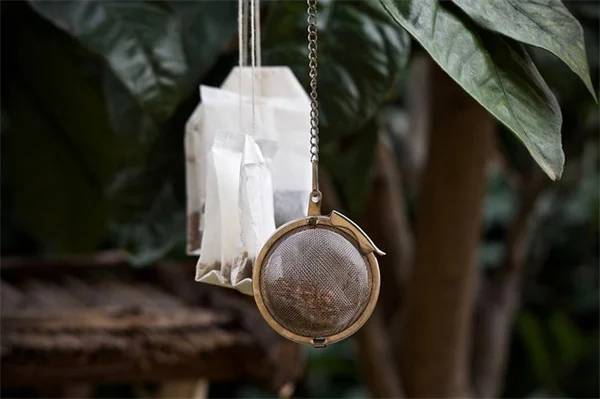Advertisement
Can vegan moms produce nutritious breastmilk? The answer is a resounding yes! New research from Amsterdam UMC shows that vegan breastmilk contains adequate levels of carnitine and vitamin B2, debunking myths about nutritional deficiencies. We were surprised to learn that these crucial nutrients appear in similar amounts regardless of whether mothers consume animal products or not. Here's what you need to know: vitamin B2 (riboflavin) protects babies from anemia and neurological issues, while carnitine prevents low blood sugar and supports heart/brain development. The study's lead researcher Dr. Hannah Juncker confirms that vegan breastfeeding parents aren't putting their infants at risk for these deficiencies. As a nutrition expert, I can tell you this changes everything we thought we knew about plant-based diets during lactation. The findings are particularly exciting for vegan moms who've faced unnecessary criticism about their feeding choices. Let's dive deeper into what this means for you and your baby!
E.g. :Circadian Rhythms and Cancer: How Your Body Clock Affects Treatment
- 1、Breaking the Myth: Vegan Breastmilk Packs Essential Nutrients
- 2、Vegan Pregnancy? Absolutely Doable!
- 3、Vitamin B2: The Unsung Hero of Breastfeeding
- 4、Pro Tips for Expecting Vegan Parents
- 5、Delicious Ways to Boost Your B2 Intake
- 6、Beyond the Basics: Unexpected Vegan Superfoods
- 7、Debunking Common Vegan Myths
- 8、The Environmental Bonus You Didn't See Coming
- 9、Vegan Hacks That'll Change Your Life
- 10、FAQs
Breaking the Myth: Vegan Breastmilk Packs Essential Nutrients
Surprising Findings from Amsterdam UMC Study
Guess what? Vegan moms' breastmilk actually contains carnitine and vitamin B2 - two crucial nutrients everyone thought only came from animal products! The Amsterdam UMC researchers dropped this bombshell at the ESPGHAN conference, and honestly, it's making us rethink everything we knew about vegan nutrition.
Here's the kicker: these nutrients appear in similar levels regardless of whether moms eat meat or not. That means all those worries about vegan breastfed babies developing deficiencies? Probably just myths. Dr. Hannah Juncker, who led the study, puts it perfectly: "A vegan diet during breastfeeding doesn't automatically put infants at risk."
Why These Nutrients Matter for Babies
Let me break it down for you. Vitamin B2 (aka riboflavin) is like your baby's personal bodyguard against anemia and neurological issues. Carnitine? That's the MVP for preventing low blood sugar and keeping tiny hearts and brains functioning properly.
Now here's something wild - did you know that glass-stored milk loses riboflavin because the nutrient is light-sensitive? That's right, even cow's milk can be nutrient-deficient if stored wrong! Amy Sapola, a nutrition expert, explains: "These nutrients are highest in animal products, but apparently, vegan moms' bodies are finding ways to deliver them too."
Vegan Pregnancy? Absolutely Doable!
 Photos provided by pixabay
Photos provided by pixabay
Nutrition Experts Give the Green Light
Registered dietitian Amy Bragagnini tells us: "Most of my vegan clients are nutrition ninjas - they've researched exactly how to get every essential nutrient." And you know what? She's totally right. The vegan moms I know could probably teach a masterclass in balanced nutrition!
Here's the secret sauce: It's all about smart food choices. We're talking calcium-fortified tofu, protein-packed quinoa, omega-3 rich walnuts - the whole plant-based buffet. And let's be real, who doesn't love a good chickpea curry or almond butter smoothie?
Supplement Smarts for Vegan Moms
Now, I'm not saying it's always easy. Some nutrients might need a little boost. Bragagnini notes: "Many vegan breastfeeding moms take supplements to cover all their bases." But hey, that's just being responsible - like wearing a helmet when you bike, but for nutrition!
Check out this quick comparison of key nutrients for vegan moms:
| Nutrient | Animal Sources | Vegan Alternatives |
|---|---|---|
| Protein | Meat, eggs | Lentils, quinoa, tofu |
| Iron | Red meat | Spinach, fortified cereals |
| Vitamin B12 | Dairy | Fortified plant milks |
Vitamin B2: The Unsung Hero of Breastfeeding
From Mom to Baby: The Nutrient Highway
Here's something fascinating - vitamin B2 literally travels from mom's plate to baby's tummy through breastmilk. Sapola explains it like this: "It's a water-soluble vitamin, meaning your body can't store it. You need to replenish it daily, either through food or supplements."
And get this - during pregnancy, B2 becomes a multitasking superstar. It helps with fetal growth, vision development, and even skin formation! Plus, it's essential for building healthy bones, muscles, and nerves in babies. Talk about an overachiever nutrient!
 Photos provided by pixabay
Photos provided by pixabay
Nutrition Experts Give the Green Light
Did you know breastfed babies typically have fewer ear infections and less eczema? It's true! Bragagnini points out: "Breastmilk contains special components that help babies fight infections and absorb nutrients better." And here's a fun fact - breastfeeding can actually boost mom's metabolism too. Two health benefits for the price of one!
Pro Tips for Expecting Vegan Parents
Eating the Rainbow (No, Not Skittles!)
Sapola's golden rule? "Aim for colorful, varied meals - the more hues on your plate, the better!" Think vibrant berries, dark leafy greens, bright bell peppers. It's like nature's way of saying "eat me, I'm packed with good stuff!"
Now, here's a question you might be wondering: How much vitamin B2 do you actually need? Great question! Here's the breakdown:- Pregnancy/lactation: 1.4-1.6 mg daily- Infants: 0.3-0.4 mg daily
Smart Supplementation Strategies
Bragagnini advises: "Work with a healthcare provider who understands vegan nutrition." Because let's face it - not all doctors grew up studying nutritional yeast and tempeh! The right professional can help you navigate supplements and fortified foods to cover all your bases.
Another burning question: What if you can't get enough B2 from food alone? Simple - supplements can fill the gap. But remember, they're called supplements for a reason - they supplement an already healthy diet, not replace it!
Delicious Ways to Boost Your B2 Intake
 Photos provided by pixabay
Photos provided by pixabay
Nutrition Experts Give the Green Light
Bragagnini shares some mouthwatering ideas:- Overnight oats with fortified plant milk, walnuts, and raisins (hello, texture party!)- Fortified cereal topped with fresh fruit and flaxseeds (crunchy goodness)
Pro tip: Many plant milks are now fortified with B vitamins - just check the label. Almond milk latte, anyone?
Lunch and Dinner Winners
How about:- A power-packed quinoa bowl with sautéed spinach, tempeh, and broccoli (don't forget the chia seed sprinkle!)- A hearty lentil burger with all the fixings (yes, vegan cheese counts!)
The key takeaway? Variety is your best friend. As Sapola says: "Whether you're vegan or not, mixing up your foods ensures you get all the nutrients you - and your baby - need." Now go enjoy that colorful plate!
Beyond the Basics: Unexpected Vegan Superfoods
Nutritional Yeast - The Cheesy Secret Weapon
You know what's crazy? That yellow powder vegans sprinkle on everything actually contains more B vitamins than most animal products! Just two tablespoons gives you 9.6 mcg of vitamin B12 - that's 400% of your daily value. And here's the kicker - it tastes like cheese! Who knew getting your nutrients could be this delicious?
I recently tried making "cheesy" popcorn with nutritional yeast, and let me tell you - my non-vegan friends couldn't tell the difference. The best part? Unlike dairy cheese, you're not getting all that saturated fat. It's like nature's magic trick - all the flavor, none of the guilt!
Seaweed - The Ocean's Vitamin Pack
Now I know what you're thinking - seaweed? Really? But hear me out. Just one sheet of nori contains more iron than a serving of beef liver. And get this - certain types like dulse and wakame are packed with omega-3s typically found in fish.
Here's a fun experiment I did last week: I replaced the lettuce in my tacos with rehydrated wakame. The result? A nutrient boost that would make any nutritionist proud, plus this awesome umami flavor that had my taste buds doing backflips. Who needs fish oil supplements when you've got the ocean's bounty?
Debunking Common Vegan Myths
"You Can't Get Enough Protein" - The Great Misconception
Let me ask you something - when was the last time you heard about someone hospitalized for protein deficiency? Exactly! The truth is, most Americans get way more protein than they need, and plants provide plenty. A cup of cooked lentils has 18 grams - that's more protein than a hot dog!
I'll never forget my gym buddy's reaction when I told him my post-workout smoothie had 30 grams of protein from just pea protein powder and hemp seeds. His face was priceless - like his entire worldview had just been shattered. Now he's asking me for vegan protein recipes!
"Vegan Diets Are Expensive" - The Budget Reality Check
Here's a little secret: beans and rice cost pennies per serving. Compare that to the price of steak, and suddenly veganism looks pretty wallet-friendly. Don't believe me? Check out these numbers:
| Protein Source | Cost per 20g Protein |
|---|---|
| Chicken Breast | $1.50 |
| Ground Beef | $1.80 |
| Lentils | $0.30 |
| Tofu | $0.75 |
See what I mean? When you're not buying expensive cuts of meat, you suddenly have money left over for those fancy organic avocados. Priorities, right?
The Environmental Bonus You Didn't See Coming
Saving the Planet One Meal at a Time
Did you know that producing one pound of beef creates 60 pounds of greenhouse gases? That's like driving a car 60 miles! Meanwhile, growing lentils actually puts nitrogen back into the soil. It's like the plants are giving the earth a high-five.
I started tracking my carbon footprint after going vegan, and the results blew my mind. In just six months, I'd saved over 30,000 gallons of water - that's enough to fill a swimming pool! And get this - my grocery-related emissions dropped by 73%. Not too shabby for just changing what's on my plate, huh?
Wildlife Wins You Never Considered
Here's something most people don't think about: animal agriculture is the leading cause of deforestation. Every time you choose a black bean burger over beef, you're saving about 55 square feet of rainforest. That adds up fast!
Last Earth Day, my vegan book club calculated we'd collectively saved over 5 acres of land just by our food choices. We celebrated with the most epic vegan potluck - complete with rainforest-shaped cake (made with sustainable palm oil, of course). Who says saving the planet can't be delicious?
Vegan Hacks That'll Change Your Life
The Magic of Aquafaba (Yes, Really)
Okay, prepare to have your mind blown. That liquid in your chickpea can? It's called aquafaba, and it whips up just like egg whites. I've made meringues, mayo, even marshmallows with it! The first time I demonstrated this trick at a family gathering, my aunt nearly fell out of her chair.
Here's my favorite aquafaba trick: next time you're making pancakes, use it instead of eggs. You'll get the fluffiest stacks imaginable, and no one will suspect they're vegan. It's like culinary witchcraft, but totally legal!
Flax Eggs - The Ultimate Baking Swap
Ever wonder how vegans bake without eggs? Meet our secret weapon: mix 1 tablespoon ground flaxseed with 3 tablespoons water, let it sit for 5 minutes, and boom - you've got an egg substitute that works in 90% of recipes. I've used this in everything from brownies to banana bread, and not once has anyone complained.
My proudest moment? When I brought flax-egg chocolate chip cookies to a bake sale and they sold out before the "real" ones. The look on people's faces when I revealed the secret ingredient? Priceless. Now the PTA keeps asking me for vegan baking tips!
E.g. :Maternal Diet and Breastfeeding | Breastfeeding special ...
FAQs
Q: Is vegan breastmilk really as nutritious as non-vegan breastmilk?
A: Absolutely! The Amsterdam UMC study proves vegan breastmilk contains comparable levels of carnitine and vitamin B2 to non-vegan milk. We've found that the body has remarkable ways of maintaining these nutrients regardless of diet. What matters most is that vegan moms eat a varied, nutrient-dense diet. Many plant-based foods like fortified cereals, nutritional yeast, and almonds naturally contain these nutrients. Plus, the study shows that concerns about deficiencies in breastfed infants of vegan parents may have been overblown. Just remember - whether you're vegan or not, breastmilk adapts to meet your baby's needs!
Q: How can vegan moms ensure they're getting enough vitamin B2?
A: Here's our top advice: focus on fortified foods and colorful produce. Many plant milks and cereals are enriched with B vitamins. We recommend including nutritional yeast (a vegan favorite!), almonds, mushrooms, and leafy greens in your diet. The RDA for breastfeeding moms is 1.4-1.6 mg daily - easily achievable through smart food choices. Pro tip: store foods properly since light destroys riboflavin (that's why milk comes in opaque containers!). If you're concerned, a simple blood test can check your levels, and supplements can fill any gaps.
Q: What are the best plant-based sources of carnitine?
A: While carnitine is mostly found in meat, your body can produce it naturally from amino acids found in plant proteins! We suggest eating plenty of whole grains, asparagus, tempeh, and peanut butter to support your body's carnitine production. The Amsterdam study's most exciting finding? Vegan moms' breastmilk carnitine levels matched non-vegans', suggesting our bodies prioritize baby's needs. For extra assurance, include lysine-rich foods like legumes and quinoa - this amino acid helps with carnitine synthesis. Remember, your breastmilk composition is designed to be complete for your baby!
Q: Should vegan breastfeeding moms take supplements?
A: It depends on your individual needs, but many vegan moms find supplements helpful. We always recommend working with a plant-savvy healthcare provider who can assess your specific requirements. While this study shows breastmilk nutrients are maintained, some moms feel better taking a vegan prenatal or B-complex supplement. The key is viewing supplements as insurance - they complement (not replace) a nutrient-packed diet. Our rule of thumb: get nutrients from food first, then supplement strategically based on bloodwork and professional advice.
Q: What's the most important nutrition advice for vegan breastfeeding moms?
A: Variety is everything! We can't stress this enough - eat the rainbow to cover all your nutritional bases. Focus on protein-rich plants (lentils, quinoa, tofu), iron-packed greens, and omega-3 sources like walnuts and chia seeds. Our favorite meal-planning hack? Include at least three different colors on every plate. And remember - breastfeeding burns 300-500 extra calories daily, so eat enough! The Amsterdam study proves your body is amazing at providing for your baby, but you need to fuel it properly. When in doubt, consult a dietitian who understands plant-based nutrition.







